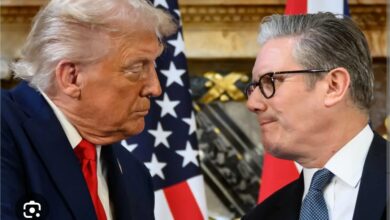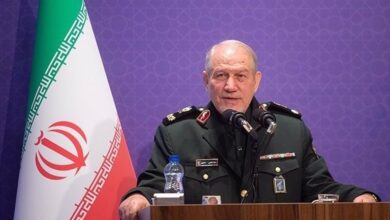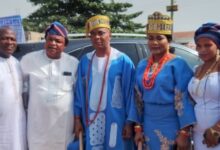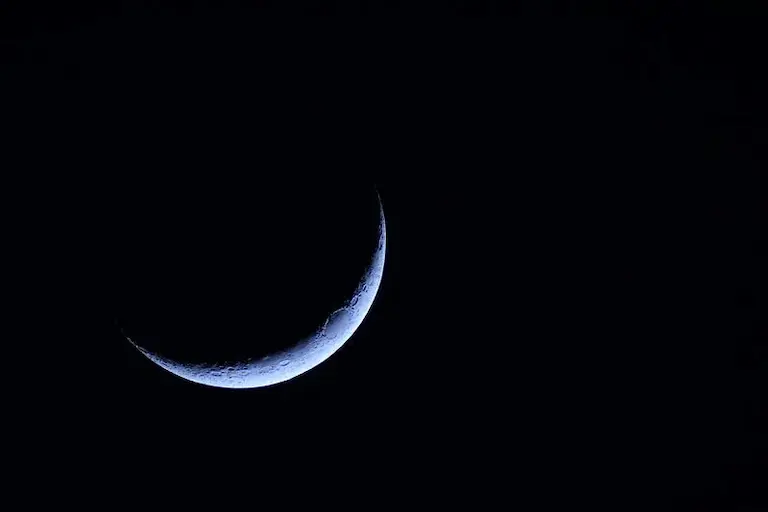Court did not consider Constitution before stopping Dino Melaye’s recall – INEC
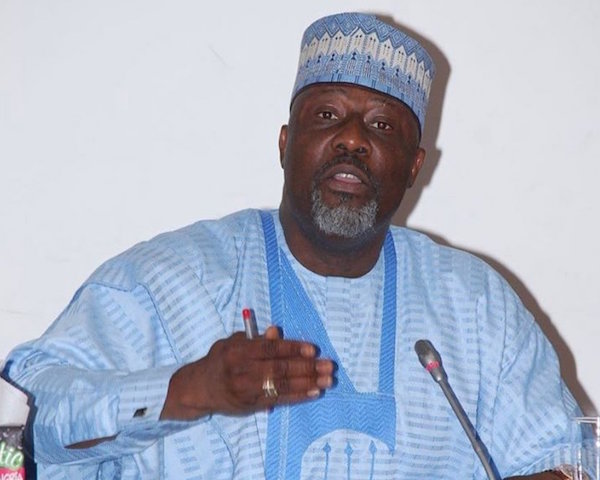
The Independent National Electoral Commission has said the interim order stopping the process of recalling the senator representing the Kogi West, Dino Melaye, was made by Justice John Tsoho of the Federal High Court in Abuja, without considering key provisions of the constitution.
The commission made this submission in its fresh motion filed on July 14, 2017 before the vacation judge of the Federal High Court in Abuja, Justice Nnamdi Dimgba, requesting that the interim order granted on July 6, 2017 be vacated.
In the motion filed on July 14, INEC contended that the interim order was granted without Justice Tsoho considering the constitutional provision mandating it to conduct a referendum for Melaye’s recall within 90 days from the date it received the constituents’ petition to that effect.
Justice Tsoho had on July 6, 2017 granted the ex parte interim order stopping INEC from going ahead with the recall process and adjourned the case until September 29.
But INEC’s lawyer, Mr. Sulayman Ibrahim, had filed the application seeking the setting aside of the interim order before Justice Dimgba, being the only one sitting as the Federal High Court’s vacation judge in Abuja.
In addition to the motion, Ibrahim filed another application, also on July 14, requesting Justice Dimgba to hear the case during the ongoing judges’ vacation due to what it described as the “time-bound duty” of INEC to conduct the recall referendum.
The INEC’s lawyer contended that the case was of extreme urgency as the commission was bound by the constitution to conduct the referendum for the recall process within 90 days from the date it received the recall petition dated June 19, 2017 from Melaye’s constituents on June 21, 2017.
He said the 90 days within which INEC must conduct the referendum would lapse on September 18, 2017.
In INEC’s motion seeking the reversal of the interim order, Ibrahim asked Justice Dimgba to set it aside on the grounds that the order not only violated its right to fair hearing, it also constituted “a hindrance” to “the time-bound constitutional duty” of INEC under section 69(a) and (b) of the 1999 Constitution.
INEC argued that the interim order violated its right to fair hearing under section 36(1) of the constitution and constituted an “infringement of one of the constitutional duties of the defendant/applicant as conferred on it by sections 1 and 69 of the Constitution of the Federal Republic of Nigeria, 1999 (as amended).”
“Therefore, the ex parte order of interim injunction of this honourable court as in Exhibit INEC1 was made without recourse to the provisions of sections 1(1) and (69(b) of the 1999 Constitution which mandates the defendant/applicant to conduct referendum within 90 days of the date of the receipt of the petition (Exhibit INEC2),” Ibrahim argued in the commission’s written address.
Arguing that the interim order should be urgently vacated, Ibrahim contended that once the 90 days period which the commission had to conduct the referendum lapsed, any extension of time would not be possible.
To support this point, Ibrahim cited a Supreme Court judgment in Buba Marwa & Others Vs. Admiral Murtala Nyako &Others delivered on January 27, 2012, when the apex court reportedly held that “the time fixed by the constitution is like the rock of Gibraltar or Mount Zion which cannot be moved.”
“It is therefore submitted that time is of the essence for the defendant/applicant to conduct a referendum sequel to the receipt of Exhibit INEC1 for the recall of the plaintiff/respondent (Melaye),” Ibrahim argued.
INEC, in its supporting affidavit deposed to by a Senior Executive Officer in its Legal Services Department, Mr. Paave Demenongo, also alleged that Melaye “misrepresented and suppressed material facts in misleading the honourable court to grant the ex parte order.”
Demenongo said INEC had published the timetable and scheduled activities for the recall process.
The timetable was attached to the motion as an exhibit.
“The last day for submission of application by interested observers, last day for submission of names of verification agents for the member sought to be recalled and the petitioners, stakeholders’ meeting, conduct of verification and declaration of the outcome of verification have been slated to hold on July 31, 2017; August 10, 2017; August 15, 2017 and August 19, 2017, respectively,” the INEC official stated.
When the case came up before Justice Dimgba on Thursday, Ibrahim introduced his two motions to the judge.
Melaye’s lawyer, Mr.Nkem Okoro of the law firm of Chief Mike Ozekhome (SAN), told the judge that he was served the motions on July 18 but needed time as provided in the court’s rules to oppose the motions.
Justice Dimgba informed the two lawyers that he was interested, first, in hearing the motion seeking accelerated hearing and the court’s leave to have the case heard during the ongoing vacation.
He said if the motion succeeded he would be willing to hear the substantive matter and possibly deliver judgment within two weeks instead of expending more time on other interlocutory applications.
INEC has already filed a counter-affidavit backed by a written address on July 14 in opposition to the main suit which was instituted by Melaye.
The judge on Thursday fixed July 27 for hearing of the motion seeking accelerated hearing of the case.
He explained that the commission received a petition dated June 19, 2017 for Melaye’s recall on June 21, 2017.



